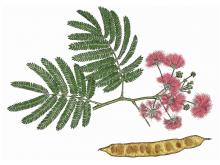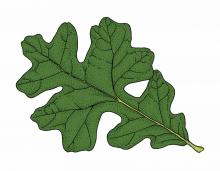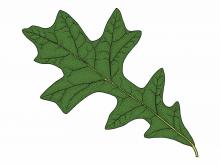Trees, Shrubs and Woody Vines
Media

Species Types
Scientific Name
Cercis canadensis
Description
Eastern redbud is a native shrub or small tree that is distinctly ornamental in spring with small, clustered, rose-purple flowers covering the bare branches before the leaves.
Media

Species Types
Scientific Name
Albizia julibrissin
Description
Grown as an ornamental for its attractive pink flower clusters, gracefully spreading branches, and delicate leaves, mimosa is easily propagated and grows rapidly. Unfortunately, it is also an invasive exotic in much of the state.
Media

Species Types
Scientific Name
Juglans nigra
Description
Easily Missouri’s most valuable tree, the black walnut provides the finest wood in the world, as well as delicious nuts. Both are in high demand and thus form an important part of Missouri’s economy.
Media

Species Types
Scientific Name
Rhus glabra
Description
Colonies of smooth sumac are most noticeable in early autumn, because the leaves turn brilliant red! You can make drinks and jellies from the clusters of fuzzy red berries.
Media

Species Types
Scientific Name
Quercus nigra
Description
Its range and interesting, variable leaf shapes identify water oak. Like many species that require wet lowland forests, water oak has been declining in our state due to long-term extensive disruption of natural habitats in our Bootheel counties.
Media

Species Types
Scientific Name
Quercus stellata
Description
Post oak has long been favored for fence posts and was valued by American pioneers. It has distinctive cross- or ghost-shaped leaves. It grows in rocky upland woodlands and in flatwoods on broad ridges.
Media

Species Types
Scientific Name
Quercus lyrata
Description
Overcup oak is fairly easy to identify. The acorns are almost completely covered by their knobby cups. The leaves have long, narrow lobes and wide sinuses. In Missouri, it grows naturally only in wet forests along the Mississippi and Meramec rivers.
Media

Species Types
Scientific Name
Quercus bicolor
Description
A beautiful tree, swamp white oak features bicolored leaves that are shiny, dark green above and downy white below. When a breeze sets them in motion, their wavy or lobed shapes add a calm grace to a summer's hike.
Media

Species Types
Scientific Name
Quercus coccinea
Description
Scarlet oak is a common tree of the Missouri Ozarks. Today it occupies much the same area that shortleaf pine used to dominate before it was extensively cut prior to the 1920s.
Media

Species Types
Scientific Name
Quercus falcata
Description
This tree has two names as well as two leaf types! In Missouri, southern red oak, or Spanish oak, occurs natively only in our southeast and southernmost counties.
See Also
About Trees, Shrubs and Woody Vines in Missouri
There are no sharp dividing lines between trees, shrubs, and woody vines, or even between woody and nonwoody plants. “Wood” is a type of tissue made of cellulose and lignin that many plants develop as they mature — whether they are “woody” or not. Trees are woody plants over 13 feet tall with a single trunk. Shrubs are less than 13 feet tall, with multiple stems. Vines require support or else sprawl over the ground.





















